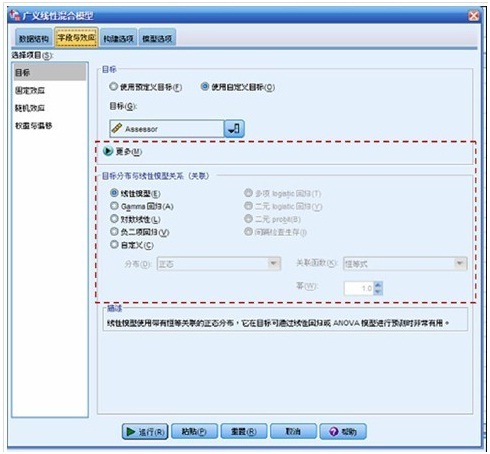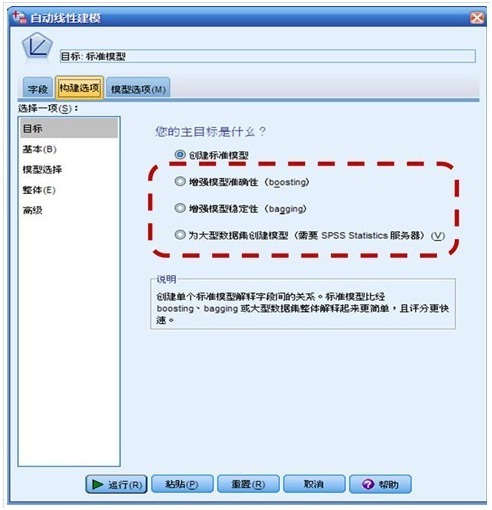SPSS Statistics Standard
Features and benefits
With the IBM SPSS Statistics Standard Edition, you can get a quick look at your data, formulate hypotheses for additional testing, and then carry out a number of procedures to help clarify relationships between variables, create clusters, identify trends and make predictions. Key capabilities include:
Linear models
The IBM SPSS Statistics Standard Edition features a variety of regression and advanced statistical procedures designed to fit the inherent characteristics of data describing complex relationships, including:
•General linear models (GLM)
•Generalized linear mixed models (GLMM)
•Generalized linear models (GENLIN)
•Generalized estimating equations (GEE)
Nonlinear models
You can also apply more sophisticated models to your data using a wide range of nonlinear regression models, using these procedures:
•Multinomial logistic regression (MLR) - Predict categorical outcomes with more than two categories
•Binary logistic regression - Easily classify your data into two groups
•Nonlinear regression (NLR) and constrained nonlinear regression (CNLR) - Estimate parameters of nonlinear models
•Probit analysis - Evaluate the value of stimuli using a logit or probit transformation of the proportion responding
Customized tables
The IBM SPSS Statistics Standard Edition enables you to quickly “slice and dice” your data. Then you can create customized tables to help you better understand your data and easily report your results.
Be ready for everyday analytical tasks with the IBM SPSS Statistics Standard Edition, and get results quickly and easily. Contact your sales representative to learn more - and ask about our informative webcasts and newsletters on predictive analytics.

